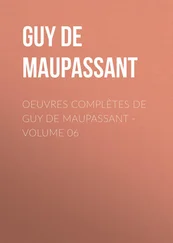“I appreciate it,” Vera assured him, pouring coffee. “I just feel awful we didn’t shop for you.”
The topic of presents and purchases exhausted, conversation lapsed. In the silence, Daniel’s axe could be heard ringing in the frozen air. Looking ill at ease, Mr. Stutz blew energetically into his coffee mug. Vera noticed that in the warmth of the kitchen his nose had begun to run, a drop hung trembling on its tip, prompting her to turn her eyes away. When she did, Mr. Stutz cleared his throat and launched into what he had come to say. “You know, Mrs. Miller, your father can’t understand what all this is about – this packing up and leaving him.”
“I’m not surprised,” said Vera, struggling to appear calm, reasonable. “I must say that doesn’t surprise me in the least. The only thing my father’s ever been able to understand is what matters to him. Did you ever notice that about him, Mr. Stutz? Nothing exists unless it’s of some use to him. Do you know when I figured that out? I must have been sixteen, just after my mother died. He seemed to think that my brother and I were there just to make him feel better about the situation. One servant and one pet, you might say. He couldn’t think of anyone but himself. My father’s a very selfish man, Mr. Stutz.”
“He’s always treated me fair,” observed Mr. Stutz.
“And why should he have any trouble treating you fair?” challenged Vera. “When were the two of you ever at cross purposes? Never.”
Mr. Stutz frowned. “I wouldn’t know about that. I wouldn’t go that far.”
“I would,” said Vera, breaking open her carton of Millbanks and lighting herself a cigarette. “I know all about my father and cross purposes. We wrote the book on that. It was because he always assumed the choices were his to make. Back then, when I was sixteen, I wanted to be somebody. Maybe it’s true I wasn’t exactly sure what – what kid of sixteen does? But something , a teacher, a nurse, something.” Vera held up the burning match, blew it out with an angry puff of breath. “That’s how he put me out,” she said to Stutz, “like that. He blew out my fine ideas because he knew what was best for me. Best for me was to stick at home and relieve him of the trouble of looking after my brother Earl. I believe he would be surprised if anyone was to point out the difference between good for him and good for me. He thought they were always the same thing.” Vera leaned forward tensely in her chair. “And he hasn’t lost the habit. Do you know what the latest is? He won’t tell me where my brother is. And do you know why he won’t?”
At the mention of Earl Mr. Stutz cast his eyes down to the floor. He shook his head in reply to her question.
“I’ll tell you why,” said Vera with quiet, measured vehemence. “Because he doesn’t think I deserve to know. I lost the right to know because I didn’t stay behind to raise Earl the way he thought I should. I wasn’t noble, I didn’t sacrifice, I disappointed. Instead, I went off and joined the Army.” Vera fell back against her chair, smiled ironically. “Desertion, Mr. Stutz. Vera Monkman stands accused of deserting her post, charged by the commanding officer. That’s why I have no claim on my brother. No difference between me and the bad girl who gives up a bastard baby for adoption. Bad girls lose their rights, didn’t you know? My father has made up his mind I have no right to Earl because I ran out on him. But I never ran out on Earl. It’s not my brother I was running out on, it was him, the miserable old bugger. Sixteen years old and already I was a housewife. A housewife !” Vera burst out indignantly.
For several moments she sat rigid and motionless; then her shoulders relaxed and she resumed speaking in a controlled way. “This is how I thought then, Mr. Stutz. I figured the one he loved had the best chance of surviving him. That was Earl. I think he loved Earl almost as much as he loved himself. All I knew for sure was that Vera wasn’t going to survive him. I had to get out – and I got. But he’s not one to forgive. That’s why he’s keeping me and my brother apart – to punish me.”
Mr. Stutz raised his eyes from the floor. There was a heaviness in his face that suggested a man with a desire for confession. But all he said was, “Your father doesn’t want to punish you.”
“You’re wrong there.”
“No. He wants you and Daniel to come back to his house. On your terms. Everything agreed. He wants to look after the two of you.”
“Not a chance. We’ll never go back to him.”
“Never is a long time, Mrs. Miller.”
“If there was a word longer than never, that’s the word I’d use.”
“If you don’t go back, what will you do?”
“I’ll find a job.”
“For a woman, there are no jobs in Connaught. At least none that aren’t taken. Maybe you could work at the hotel as a waitress, a cook, a barmaid, a chambermaid – but your father owns the hotel.”
“I’ll find something.”
“Maybe you could clean houses. There isn’t very much money in it but it’s something a woman can do. You could clean the lawyer lady’s house, the doctor lady’s house, the druggist lady’s house. Would you like that? Cleaning houses and those ladies being so good as to point out to you the spots you missed?”
“I don’t miss spots.”
Mr. Stutz smiled knowingly. “Mrs. Miller mightn’t miss spots – the cleaning lady always does. It’s a fact of life. You ought to consider that.”
“I’m past considering.”
“Then you better be past pride, too.”
Vera didn’t respond. She was listening to the axe thud on the chopping block.
After a time Mr. Stutz sighed and said, “The old Bluebird Cafe has been empty now for two years. No one could seem to make a go of it after the Chinaman died.”
“And?”
“And did you ever think of going into business for yourself? Two thousand dollars, more or less, would get it operating again. You’re a good cook. You could manage a cafe, I’m sure. Your father claims you’re clever, at any rate.”
“My father never claimed any such thing.”
“You don’t know everything about your father. Your father claims you’re clever. I heard him,” repeated Stutz with emphasis.
“All right, so I’m a genius without two thousand dollars. A lot of good it does me, brains without money.”
“Your father will give you the money if you ask him.”
“What? Give me money to set up in competition with him? The Bluebird’s directly across the street from the hotel and its restaurant.”
“Do you think he cares about competition? When’s the last time he gave a thought to his businesses? He leaves the running of them to me, or they run themselves. Alec’s got enough. If you ask, he’ll set you up.”
“Haven’t you heard a word that I’ve said? You’ve got to be crazy if you think I’d ask. Especially after you’ve sat at this table and heard me say exactly what I think of him. Don’t mistake me for a hypocrite, Mr. Stutz.”
Mr. Stutz took a deep breath, shifted himself on his chair seat. “All right,” he said, “then I’ll lend you the money.”
Vera was so taken aback that she doubted she had heard him correctly. “What’s that? What did you say?” she demanded rudely.
“I’ll lend you two thousand dollars to give The Bluebird a whirl. If you want,” said Mr. Stutz, twisting his neck uncomfortably in his shirt collar.
She was incredulous. “And why in the world would you do that, Mr. Stutz?”
This question only increased Mr. Stutz’s discomfort. “Well, Mrs. Miller,” he said, “you’ve got the boy to look after and I know you’re an honest woman and…” here he broke off, cast around desperately for a conclusion to his speech, and blurted out, “and if Christ was in my shoes, I think he’d give you the money!”
Читать дальше












